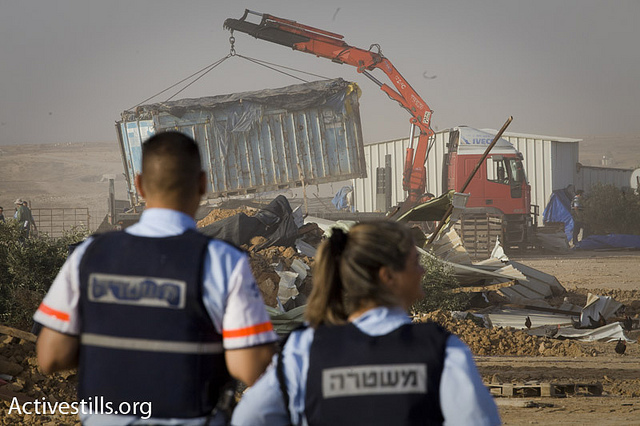Israel Closes Medical Clinics in Naqab Bedouin Villages, Putting About 20,000 Residents at Risk
On 19 October 2023, it was reported that, following the instructions of the Israeli Army's Home Front Command, medical clinics in several Bedouin villages in the Naqab (Negev) region in the south of Israel have been closed since the beginning of the war on October 7th because the facilities do not have shelters.
In response, on 19 October, Adalah – The Legal Center for Arab Minority Rights in Israel, sent an urgent letter to Israel’s Minister of Health and the directors of the Clalit and Meuhedet Health Services demanding the immediate reopening of the clinics. Medical clinics were shut off in Wadi Al-Na’am, Al-Zarnouq, Abu Tuloul, ‘Abdeh and Khirbit Al-Watan. These villages, which together have a population of about 20,000 Bedouin residents, already have extremely limited medical services and many of them are unrecognized by Israel, and therefore do not receive the most basic necessary services.
CLICK HERE to read Adalah’s letter
In the letter, Adalah Attorney Salam Irsheid emphasized that the closure of the already scarce medical clinics in these villages has left residents without any accessible medical services within a reasonable proximity to their homes. Residents are now forced to travel to distant clinics situated in other villages and local councils to receive essential medical care, often involving travel distances of 15-20 kilometers or more. This poses a significant risk to their lives given the current security situation in the country. This situation is exacerbated for residents who do not have access to a car, as they must walk considerable distances on unpaved roads to reach the nearest bus station. This is particularly true in the case of Bedouin women in these villages, many of whom do not own cars or possess driving licenses, and thus need to travel long distances on foot, often with their children, to reach a bus station.
Adalah further argued that under Israeli law, as affirmed by the Supreme Court, the right to accessible healthcare is considered a fundamental right that the state cannot evade. The Ministry of Health and Israeli Health Maintenance Organizations (HMOs) are legally obligated to offer health services of reasonable quality, within a reasonable timeframe, and at a reasonable proximity to the insured individual's place of residence. The closure of the medical clinics is therefore illegal and serves as a stark indication of the neglect of healthcare for Bedouin residents in the Naqab.
Adalah emphasized that the state has a responsibility to offer medical services within a reasonable proximity, even if this requires the establishment of shelters to meet security requirements.
Adalah Attorney Salam Irsheid commented:
"The state, once again, showcases its blatant neglect of Bedouin citizens, evident in its consistent refusal to provide shelters to Bedouin villages, leaving them utterly defenseless, with Bedouin casualties continuing to rise during this ongoing war. The state is now closing down the scarce medical services available in Bedouin communities, and as a result, the residents are bearing the burden of the state's own failures in ensuring that their clinics adhere to security guidelines. For decades, Israel has denied basic services, including water, electricity, and medical care to Bedouin villages in the Naqab, while repeatedly refusing to provide the necessary shelters, creating a coercive environment to forcefully displace them from their lands. This discriminatory policy is now putting their lives at immediate risk. Once again, the state's actions reveal a complete disregard for the lives and well-being of its non-Jewish citizens."
















